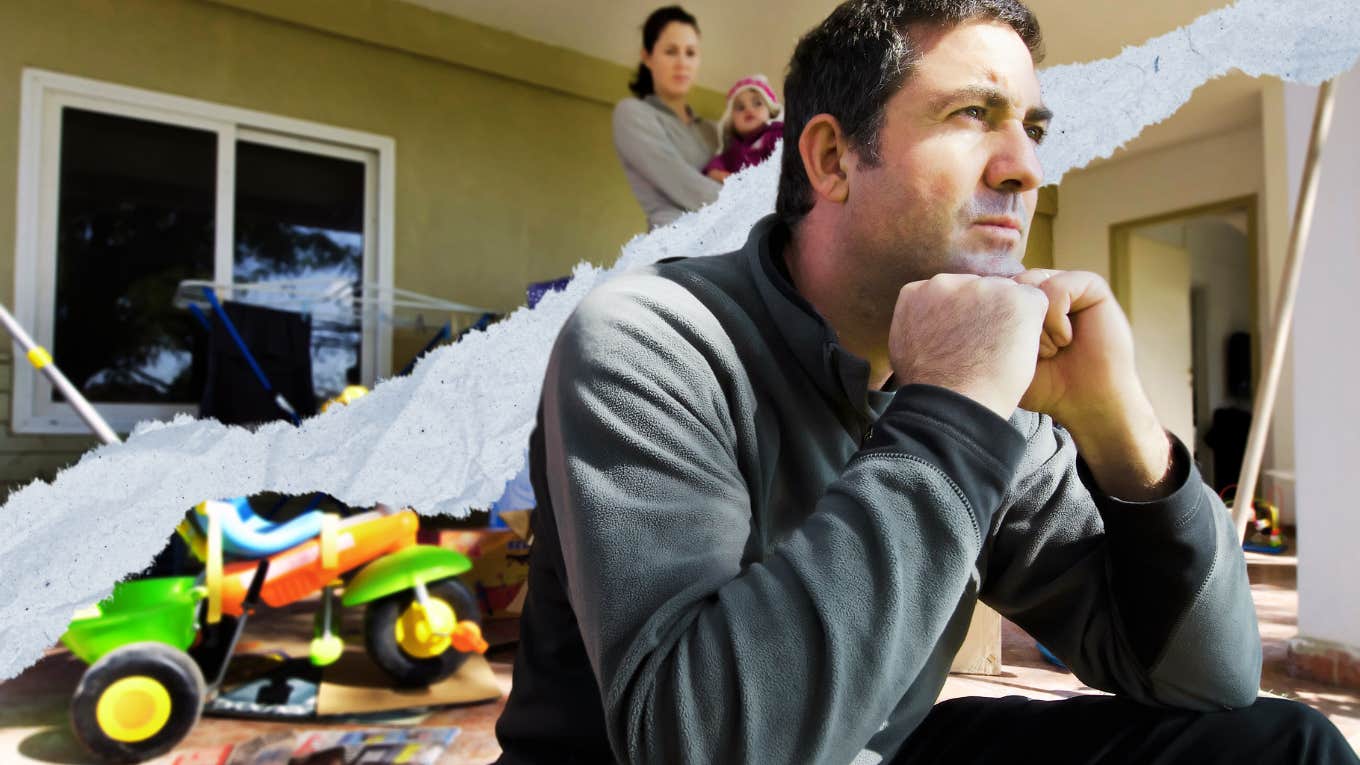I Stayed In A Bad Marriage For My Kids. It Was A Huge Mistake.
The only kind of marriage your kids will know is an unhealthy one.
 ChameleonsEye | Shutterstock
ChameleonsEye | Shutterstock Are you staying in an unhealthy marriage for the children? I did. I was confused. I was ashamed. But mostly, I was afraid of hurting my kids. Now we know that childhood exposure to "toxic stress" can have a cumulative toll on a person's well-being for a lifetime.
Children exposed to prolonged adversity, such as physical or emotional abuse or chronic neglect, caregiver substance abuse, or mental illness, are at greater risk for cancer, diabetes, and other diseases. Toxic stress increases their risks for smoking, drug abuse, suicide, teen pregnancy, STDs, domestic violence, and depression. Simultaneously, toxic stress can reduce children's ongoing chances of success in school, holding jobs, and maintaining stable relationships. And yet, as discussed in 2013 in the New York Times, children can be shielded from the most damaging effects of this stress if their parents are taught how to respond appropriately. But how do couples respond appropriately if a parent cannot see toxic stress for what it is?
For more than a decade I stayed unhappily married because I was unable to see a healthy alternative to my life. Part of me floated on the surface like all was serene and unsinkable in my domestic sphere. But under the surface, I was scared, treading water in a bog of delusions like I was afraid of the light. I'd ask myself if I were to get divorced, how would my children bear being split between two households? Before I could even fathom an answer, I'd remind myself, "I would never be able to afford my household." I was unemployable. Felt worthless, and I thought I had no choices.
I was, in reality, a SAHM, (a stay-at-home mother) and I knew I was a good mom. But I thought my skill set was nontransferable to the workplace — or anywhere, actually, because my self-esteem had run aground. I was in a toxic relationship, the details of which are unnecessary here, because what matters is that I was like a lot of people. I felt powerless and I couldn't see straight. I thought I should content myself with the way the marriage was, what life was, what I was, all because I had children now. Why did I think I was entitled to anything else when plenty of people around me were unhappy as well? I lived in New York City where one need only step off the curb to be called another form of "MOTHA" by a ticked-off bike messenger. Stress, anger, unhappiness, and "putting up with it" are commonplace in New York.
I had grown up with a bleak unhappiness, too. I saw it whenever I returned home. Back in my mountain town where the socioeconomics were different, perhaps people were not as openly stressed as New Yorkers, but there was a low-grade chronic stress and melancholia that clouded the landscape. People were often more disheartened, more haggard, and beaten by the burden of responsibilities they faced — the fatality that was their lives. There were no choices here either. Once you bring children into this world, you don't have the right to be selfish. You must provide. With growing up in dysfunction and marrying dysfunction, I couldn't see it for what it was. I thought I couldn't provide because I was unemployable, so I felt as if I should just hunker down and do what I knew I could for my children, which was to nurture them. I did not deserve to follow my dreams or ambitions or nurture myself.
Until some kind of alarm went off, and I realized my children's world was no Leave It to Beaver sanctuary; it was more like a war zone with no end in sight. There was so much yelling. My children were being raised by grownups who were not adults at all. As their mother, I was not shielding them from stress, because I was unable to protect myself or imagine an alternative from what I'd grown up with, or what I was being force-fed. My best intentions were feathering the nest for the toxic stress they were growing up in. As I shifted my eyes to find a way out of the marriage, I realized I had to face the light. Indeed, my children were my light.
If you are in an unhealthy relationship, get help; if not for yourself then for your kids. You will always be your children's role model. What kind of role model is the question you must ask yourself? Knowing what your options are helps you choose the way you wish to live and what you want to bequeath to your kids. If you feel alone or isolated, know that you are not alone with these feelings, either. There are a lot of women like you, but remember, you are an adult. When your kids see you move toward your happiness, no matter how hard it is, they will be inspired. Follow the light that is your dream. It's what you want for your kids.
If you think you may be experiencing depression or anxiety as a result of ongoing emotional abuse, you are not alone.
Domestic abuse can happen to anyone and is not a reflection of who you are or anything you've done wrong.
If you feel as though you may be in danger, there is support available 24/7/365 through the National Domestic Violence Hotline by calling 1-800-799-7233. If you’re unable to speak safely, text LOVEIS to 1-866-331-9474.
Liza Caldwell runs SAS for Women, a boutique firm that specializes in helping women free themselves from dysfunctional and unhappy relationships.

